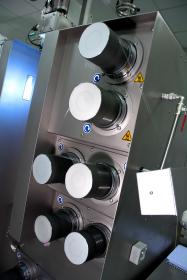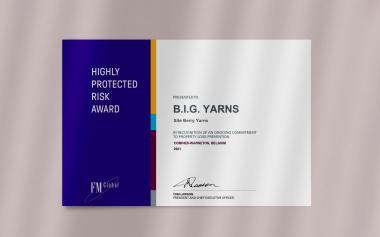FET: Further Gains in the Biomedical sector
Fibre Extrusion Technology of Leeds, UK has delivered nine meltspinning systems to clients in the biomedical sector since the onset of the Covid-19 pandemic, with a similar number currently on order for 2021/22. This way FET could confirm the position as an acknowledged world leader in meltspinning equipment for the production of precursor materials used in medical devices and as a default supplier for absorbable suture production systems, with orders virtually doubling year on year.
Recent installations include a multi-functional system that can produce both multifilament and monofilament pre-cursor fibres, but nonwoven systems have been particularly prominent, driven by the burgeoning demand for FFP3 masks, gowns and other medical products required during the pandemic. These have been sold to medical device manufacturing companies across the globe, including the Far East, USA and Europe. Research organisations have also invested in FET systems for biomedical applications, the most recent being the University of Leeds in a laboratory scale Spunbond system.
The FET in-house Process Development Laboratory and ongoing collaboration with biomaterial polymer suppliers has helped to optimise the biomedical melt spinning technology. The Laboratory is at the disposal of customers for all aspects of confidential testing and evaluation. To further increase this competitive edge, FET will be opening a new Process Development Laboratory and Visitor Centre in early 2022.
Projectmarketing for FET


















